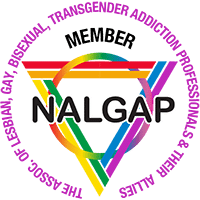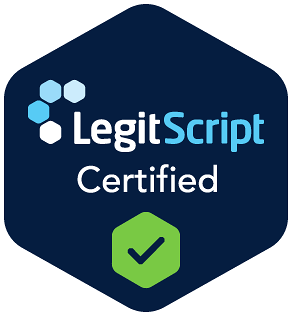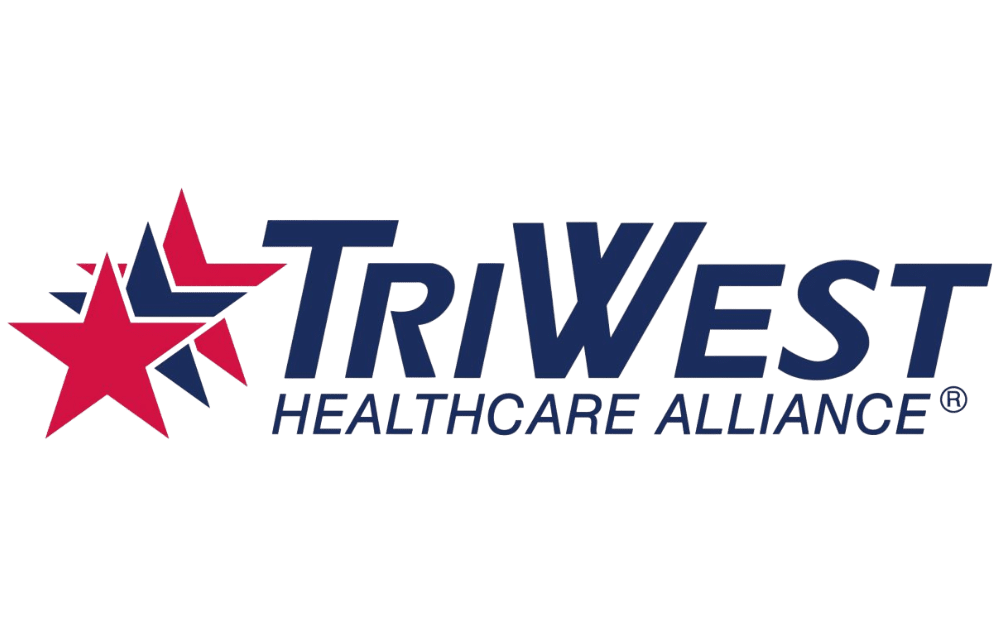Denver sober living houses
Our Journey Towards a Brighter Sobriety Path
Since our inception in 2016 with a single sober living house, we at Mile High Recovery Center have grown into a comprehensive network of nine sober living homes. Our journey is one of passion, commitment, and unwavering belief in the power of community and structured support. The transformation from a single house to a multi-faceted treatment center has allowed us to touch countless lives, helping individuals reclaim their independence and embrace sobriety.
Being part of the Denver sober living houses scene, our evolution is deeply rooted in the vibrant recovery community of Denver. We derive our strength from the success stories of those who have walked through our doors, empowering others to follow their paths toward recovery. Our homes are not just places to stay; they are sanctuaries, where healing begins and hope is nurtured through structured support and compassionate care.
Comprehensive Treatment and Beyond
At Mile High Recovery Center, we embrace a holistic approach to treatment and rehabilitation. Our continuum of care includes residential treatment, intensive outpatient programs, partial hospitalization, and medication-assisted treatment options such as Suboxone and Vivitrol. This multi-faceted approach ensures that individuals receive personalized care tailored to their unique needs and recovery goals.
Integration is at the heart of our philosophy. Our services extend beyond traditional therapies, incorporating experiential modalities like adventure therapy, equine-assisted therapy, and art and music activities. By blending evidence-based methodologies with experiential learning, we create a dynamic treatment environment that promotes not only recovery but personal growth and transformation.
We focus on treating various substance use disorders, providing dual-diagnosis services for co-occurring mental health conditions. Our personalized treatment plans offer more than clinical care; they are pathways to long-term sobriety and meaningful reintegration into life beyond addiction.
The Importance of Community in Recovery
Community is not just a word at Mile High Recovery Center; it’s the cornerstone of everything we do. Our Denver sober living houses are more than physical structures; they are inclusive, accepting communities where individuals can find the strength and support needed to maintain sobriety. We foster a sense of belonging and connection, recognizing that addiction often thrives in isolation.
Our community supports recovery through shared experiences, group activities, and an active alumni network. Residents participate in social gatherings, group therapy, and outdoor adventures, creating bonds that transcend the boundaries of structured programs. These connections are essential, reinforcing the belief that recovery is a shared journey that no one should have to face alone.
Navigating the Transition to Sober Living
The transition from treatment to everyday life can be daunting, but our Denver sober living houses provide the perfect bridge. Our models are designed to promote independence while offering the safety and structure needed for successful recovery. Residents benefit from a seamless transition facilitated by trained staff who understand the challenges and triumphs of sobriety from personal experience.
Life within our homes is structured around recovery principles and daily routines. We emphasize accountability, encouraging residents to participate in chores, attend house meetings, and engage in community activities. This structure helps establish healthy habits and build confidence as residents prepare for life beyond sober living.
Accessibility and Support for All
Mile High Recovery Center is committed to being accessible to everyone seeking a path to recovery. Our center offers same-day admission and 24-hour intake access, ensuring immediate support for those in need. We coordinate with major insurance providers like Aetna, Cigna, and Blue Cross Blue Shield, helping residents navigate the complexities of insurance coverage and reimbursement.
Our inclusivity extends to diverse populations, including LGBTQ individuals and military beneficiaries. We also collaborate with local healthcare providers to create seamless referral partnerships, ensuring continuity of care and support at every stage of recovery. At Mile High, we believe that everyone deserves the opportunity to reclaim their life and achieve lasting sobriety.
Cultural and Urban Advantages in Denver
Located in the heart of Denver, our sober living houses take full advantage of the city’s cultural and urban offerings. Denver’s vibrant arts scene, outdoor spaces, and thriving recovery community provide a rich backdrop for those on the path to sobriety. Our residents enjoy access to cultural attractions, 12-step meetings, and recreational activities that reinforce community engagement and personal growth.
The urban environment aligns with our emphasis on community-based recovery, encouraging residents to integrate their sober living experiences with Denver’s dynamic offerings. Our proximity to outdoor activities like hiking and biking allows residents to reconnect with nature, using physical activity as a vital component of their recovery journey.
Our Dedicated Team: Passion Meets Experience
The team at Mile High Recovery Center is a diverse group of professionals who share a common goal: to help individuals achieve and maintain sobriety. Our staff includes clinicians with extensive experience in substance use disorders, as well as individuals with lived recovery experiences. This combination of professional expertise and personal insight creates a nurturing and understanding environment.
Our team plays a critical role in the success of our Denver sober living houses, providing guidance and support every step of the way. They are role models, sharing their journeys and offering hope to residents facing similar challenges. Our commitment to excellence is reflected in our Joint Commission and NALGAP affiliations, ensuring the highest standards of care and support.
Integrating Therapy and Lifestyle for Holistic Recovery
Recovery at Mile High is not just about abstaining from substances; it’s about transforming one’s lifestyle and embracing new possibilities. Our therapeutic approach integrates clinical therapies with lifestyle changes, empowering residents to develop skills and relationships that support lifelong recovery. This holistic method fosters personal growth, encouraging individuals to rediscover their passions and purpose.
Residents participate in therapies designed to address both substance use and co-occurring mental health issues, such as EMDR and Dialectical Behavior Therapy. These therapies are complemented by lifestyle activities that promote wellness and creativity, allowing residents to explore new interests and develop supportive networks. Together, therapy and lifestyle transformations pave the way for enduring sobriety.
We emphasize nutrition education as an integral part of recovery, helping residents understand the role of diet in mental and physical well-being. By nourishing the body and mind, we support holistic recovery and encourage a balanced approach to health and wellness.
Alumni Support: Creating a Lasting Impact
At Mile High Recovery Center, recovery doesn’t end when a resident completes their program. Our active alumni community is a testament to the lasting impact of sober living and the bonds formed during recovery. Alumni play a vital role in supporting newly graduated residents, offering mentorship and encouragement as they navigate life beyond our doors.
The alumni network is a living extension of our Denver sober living houses, providing opportunities for social engagement, continued learning, and shared growth. Alumni events and activities create a sense of belonging and connection, helping individuals remain committed to their recovery journeys long after leaving our facilities.
Our alumni program embodies the spirit of lifelong sobriety, offering a supportive platform for ongoing recovery and personal development. By fostering these enduring connections, we help individuals build meaningful lives, free from the constraints of addiction.
What are some common misconceptions about sober living houses in Denver?
One common misconception is that sober living houses are just temporary shelters. In reality, they are structured environments specifically designed to support individuals transitioning from addiction treatment to independent living. Another misconception is that these homes are isolated from everyday life; however, many are strategically located to encourage integration into the community, offering access to employment opportunities, social activities, and ongoing therapy. Additionally, there’s often a misunderstanding about their affordability. Many facilities, like ours at Mile High, work with insurance providers to manage costs effectively, making the support accessible to a wider array of individuals.
How do I choose the right sober living home in Denver?
Choosing the right sober living home involves considering several factors such as the level of structure, the types of services provided, and the environment’s overall vibe. It’s important to look for homes that offer tailored programs with evidence-based therapies and a supportive community. At Mile High, for instance, we focus on integrating therapy and lifestyle changes, helping residents develop skills that promote long-term sobriety. It’s beneficial to visit different houses, speak with the staff and current residents, and assess how comfortable and supported you or your loved one would feel in that setting.
What benefits does an integrated treatment and housing approach offer?
An integrated approach provides a seamless transition from treatment to independent living, critical for maintaining sobriety. At Mile High, we combine medical management with experiential and clinical therapies, allowing for a comprehensive recovery experience. This model ensures consistency in care, minimizing the risk of relapse. For instance, engaging in therapy like DBT while also participating in community activities teaches residents to apply therapeutic insights in real-world scenarios, enhancing their adaptability and resilience. Ultimately, this holistic strategy helps forge a strong foundation for long-term recovery.
Why is community so important in the recovery process?
Community plays a crucial role in recovery because addiction often feeds on isolation. A supportive network provides emotional reinforcement, accountability, and shared understanding, which can be incredibly validating and motivating. At Mile High, we foster community through group activities and alumni networks, which help individuals form lasting connections. Imagine being in a space where everyone understands your journey–this shared bond is not just comforting but also empowering. The collective strength of a community can inspire individuals to persevere and thrive in their recovery journey.
How does a holistic recovery approach aid in sobriety?
Holistic recovery looks at sobriety from multiple aspects–physical, emotional, and psychological–rather than focusing solely on abstaining from substances. At Mile High, we integrate therapies such as EMDR and lifestyle activities like nutrition education and adventure therapy, emphasizing the whole person. This approach allows individuals to explore new passions and heal comprehensively. For example, understanding the role of nutrition can significantly affect mood and energy levels, providing a stable foundation for personal and mental health growth. Holistic recovery creates a balanced lifestyle that supports enduring sobriety.
What challenges do individuals face when transitioning to sober living, and how can they overcome them?
Transitioning to sober living can be challenging due to shifts in daily routines, changes in social circles, and the need for increased autonomy. However, structured pathways and support systems can ease this transition. At Mile High, our trained staff guides residents through this phase with empathy and experience, emphasizing accountability through chores and community involvement. Overcoming these challenges often involves embracing new routines and gradually building confidence in one’s abilities to manage life’s demands soberly. Residents learn to navigate hardships with the support of peers facing similar transitions, creating a shared journey toward independence.
How does Mile High Recovery Center ensure accessibility and inclusivity in its services?
Accessibility and inclusivity are at the heart of our mission. We offer same-day admissions and 24-hour intake to ensure immediate access to those in need. Our partnerships with major insurance providers, like Aetna and Blue Cross Blue Shield, help manage financial concerns. Moreover, our commitment extends to diverse populations, including LGBTQ individuals and military beneficiaries. Collaborations with local healthcare providers further bolster our inclusive approach, ensuring continuity of care across various demographics. By addressing these different needs, we ensure that anyone seeking help has the opportunity to receive it without barriers.
Resources
- Substance Abuse and Mental Health Services Administration (SAMHSA) – SAMHSA is the leading agency within the U.S. Department of Health and Human Services dedicated to reducing the impact of substance abuse and mental illness on America’s communities.
- National Institute on Drug Abuse (NIDA) – NIDA is a government agency that conducts research on drug abuse and addiction, providing valuable information on the latest scientific findings and treatment approaches.
- Recovery.org – Recovery.org offers a comprehensive resource for individuals seeking information on addiction treatment, recovery support, and sober living options.
- National Alliance on Mental Illness (NAMI) – NAMI is the nation’s largest grassroots mental health organization, providing support, education, and advocacy for individuals and families affected by mental illness.
- American Psychiatric Association (APA) – The APA is a leading medical association representing psychiatrists in the United States, offering resources and information on mental health disorders and treatments.
















